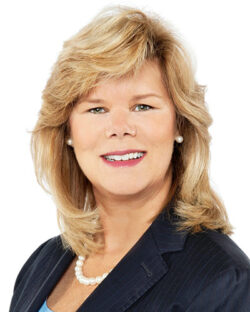By Louise Esola
Danielle Lisenbey is the global president of Broadspire Services Inc., the third-party administrator for Crawford & Co. Having studied engineering in college, she began her career in insurance working in medical management systems. In 2012 she became the first female member of Crawford & Co.’s global executive team and in 2013 was named a Woman to Watch by Business Insurance. Ms. Lisenbey, who is based in Atlanta, recently spoke with Business Insurance Assistant Editor Louise Esola on workers compensation industry challenges as the world grapples with COVID-19 infections among workers and what’s to come. Edited excerpts follow.
Q: COVID-19 has in store many changes for workers compensation. What are some of the issues you are seeing?
A: Most of the occupational disease illness statutes have been on the books for many years and were not created with a global pandemic contemplated at all. We have not seen this since the Spanish Flu in 1918. Now we are seeing states issue emergency orders to modify those statutes for a period of time, at least in effect during the pandemic, until it is under control. I anticipate folks will take a step back and really look at what needs to be inclusive. Also, the state’s technology solutions have been under tremendous strain and not designed for this situation, so you will see changes at the state level around their technology solutions. Also, doctors have had to pivot to telemedicine.
Q: Viruses aren’t something one sees often in workers comp. How is your company handling the situation?
A: While this virus isn’t something we have seen in recent times, it is viewed in workers comp as an occupational disease or illness. We’ve had to take a step back, take a hard look at our best practices and standard operating procedures around this and modify them quickly to reflect the circumstances of what we are working with right now. Before COVID-19 the most well-known occupational disease within workers comp that was pretty substantial was asbestos. So you can look at some of the things we’ve learned back then from that.
We have brought in experts to speak to our adjustors and nurses, to train and educate them from a new perspective. We have outlined some of our core services and modified them for our client base, whether it’s stress management, telemedicine or tele-rehab. The most important thing we have had to do is heighten communication and use different communication tools for our staff, our clients and the injured workers we serve.
Q: Facing a possible onslaught of claims stemming from the virus, what are some best practices you’d like to see?
A: There’s still a lot that we don’t know. Everything changes on a daily basis. Compensability decisions are very dependent on the claim and the state. It would be better if there was a better best practice or solution around this, maybe on a national basis for a crisis such as COVID-19 and a more streamlined process working with carrier, clients, attorneys, if its applicable on decisions on compensability. Could we come together better as a union, so to speak, on these circumstances? I think that would be great, but I don’t think it will ever happen.
Q: Is extensive use of telemedicine here to stay?
A: I think it is. I do believe we will see this change because of COVID-19. Telemedicine has been around for quite some time. We’ve seen a significant uptick in the thousands of percentage points in volume. Many years ago, people went to see their regular doctor. It became routine that you would start seeing the physician’s assistant and not the actual doctor. It was a big change. Now I see telemedicine to be the next evolution. We are going to see that more and more, and I think it’s here to stay.
Q: Do you see any other new solutions cropping up to handle these changes and concerns?
A: I can’t say I have any concerns other than the resource pressure. I see potential changes around evaluating the pros and cons of the virtual handling of hearings. Some may move toward that more on a permanent basis for the simple, quick and easy hearings. The states’ technology solutions were strained to their limits. We will see quick upgrades and improvement. There will be more telemedicine, tele-rehab and communications tools for more personal interactions with injured workers. At the end of the day we will all have to do a “lessons learned.” We moved our claims workforce to work at home in days and the feedback from our clients is that it was pretty much seamless.
Q: There are a lot of people in insurance who came from other fields. Can you talk about how you went from studying engineering to here?
A: I went to a conference and the speaker asked everyone to raise their hand if you came into the industry unintended. Almost everybody raised their hand. So I believe my story is similar to many in that I didn’t plan on ending up in the insurance industry. It kind of just happened.
My quick story is, many years ago I answered an ad for a supervisory job for a company in Florida called Medical Audit Services. They had been recently acquired by Kemper Insurance. They were looking for someone who had people and process skills. So the person who actually hired me said, “Hey, I can teach you the business because you have those basic skills, and I need to bring on more states in bill review and case management now that we have been acquired by Kemper. We will become their medical management arm and you have those skills.” That was 28 years ago and here I am.
Q: What was it like to be the first female member of Crawford’s global executive team?
A: Frankly, it was intimidating with that initial, “I am the only woman sitting here.” I had to do a self-reflection. Being in engineering in college, I could remember being in classes and being the only female in the room. I had two brothers; I was the only girl. I would capitalize on those experiences and use that as a roadmap. It really comes down to how you treat people. Your gender doesn’t really matter.
More insurance and risk management news on the coronavirus crisis here.



